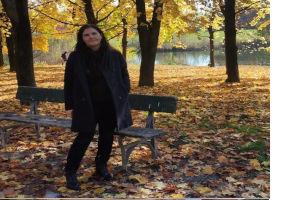The New Guidelines “Orientamenti Interculturali. Idee e proposte per l’integrazione di alunne ed alunni provenienti da contesti migratori”, published in March 2022, aim to act in the following two directions: the specificity of the proposals regarding pupils from migrant background and the universality of intercultural education for all through the education for citizenship and mutual respect.
 The enhancement of cultural linguistic diversity and plurilingualism can be reached through curricula open to knowledge of the contributions of civilizations and historical realities from all over the world.
The enhancement of cultural linguistic diversity and plurilingualism can be reached through curricula open to knowledge of the contributions of civilizations and historical realities from all over the world.
Our school has changed a lot in recent years and the presence of children and young people who have family origins elsewhere is a widespread fact. It has become the trait of a normality more and more multicultural and varied: the new generations are more involved and aware about it because they can see it in their everyday life, above all at school. Having a classmate or classmate whose family comes from different backgrounds is not considered a problem in an increasingly interconnected world.
Immigration changes at a very fast pace but, even if the school has made many strides on the issues of inclusion and attention to reception and integration, a lot remains to do, to face the problem of NEET, Neither in Employement nor in Education and Training, more pronounced in students from migrant backgrounds, and school delay which remains a typical Italian problem. So, schools, social and associative realities that work with schools and local institutions have to repair and respond to weaknesses and to imagine and support the future together.
Now more than ever before we need an education to multilingualism, in order to be able to recognize the languages spoken by boys and girls in extra- curricolar context as a resource and to activate the metalinguistic processes of comparison and exchange between languages and, as a consequence, of comminities. The Pedagogical Guidelines for the integrated system 0/6, written by our Ministry of Education in 2021, underline that "Paying attention to the language spoken in the family context constitutes the basis for learning the Italian language".
The intercultural perspective, in the school context, crosses knowledge and disciplines, is aimed at everyone, Italians and non-Italians and needs everyone's contribution. The school represents and has represented a privileged place and, however, alone it is not enough. To reach this aim it is necessary to take a different look, interpreting the subjects coming from migratory contests no longer as bearers of needs, but as bearers of rights and duties
It is also necessary to enhance the linguistic and cultural heritage of pupils from migrant backgrounds, in order to build new cultural and social identities. This aim can be reached through support networks between schools, adult education centres, educational centres and associations. In this way institutions can promote meetings and encourage opportunities for discussion and mutual knowledge, to facilitate the transition from a situation of multiculturalism, with the simple coexistence of different cultures, to an authentic situation of interaction, acceptance and exchange.
The current difficult situation, the war in Europe, has shown us the fragility of our society. Multilingualism must be the starting point for creating a multicultural society, open to all components of today’s society, increasingly varied, complex but at the same time rich in culture, in different and enriching points of view. Only by integrating diversity and valorizing it will we be able to live in an equitable society for all.
Manuela Rivetti Laureata in Lingue e Letterature Straniere presso l’Università degli Studi di Torino, ho conseguito le abilitazioni all’insegnamento per le classi di concorso A45 e A46, lingua inglese nella scuola secondaria di primo grado e lingua e cultura inglese nella secondaria di secondo grado. Ho inoltre conseguito l’abilitazione all’insegnamento nella scuola dell’infanzia e la doppia abilitazione nella scuola primaria, sia come docente su posto comune che come docente di inglese. La lingua inglese e l’insegnamento sono la mia passione, e per questo ho proseguito il mio percorso con un Corso di Perfezionamento in Didattica delle Lingue Straniere. A partire dal 2009 ho svolto diversi corsi di formazione per i docenti della scuola primaria in qualità di tutor per lo sviluppo delle competenze linguistiche--comunicative e metodologico – didattiche presso l’ USR Piemonte. Nell’anno scolastico 2012-13 sono stata la referente del Progetto Comenius Regio “Boosting Knowledge Through Music “, svolto in collaborazione con alcune scuole del Devon, tra cui un istituto “for special needs”, che mi ha permesso di approfondire la conoscenza del sistema scolastico inglese e della cultura anglosassone in materia di insegnamento - apprendimento. Dal 2007 mi occupo di Orientamento scolastico e di continuità come Funzione strumentale. Ho partecipato a vari progetti sulla costruzione del curricolo verticale coordinati dal prof. Martin Dodman e lo scorso anno scolastico ho fatto parte del suo gruppo di lavoro per la correzione nazionale delle prove Invalsi di lingua inglese. Condivido il motto di Edgar Morin, “meglio una testa ben fatta che ben piena”, insieme a quello di William Butler Yeats, “Education is not the filling of a pail, but the lighting of a fire”.



